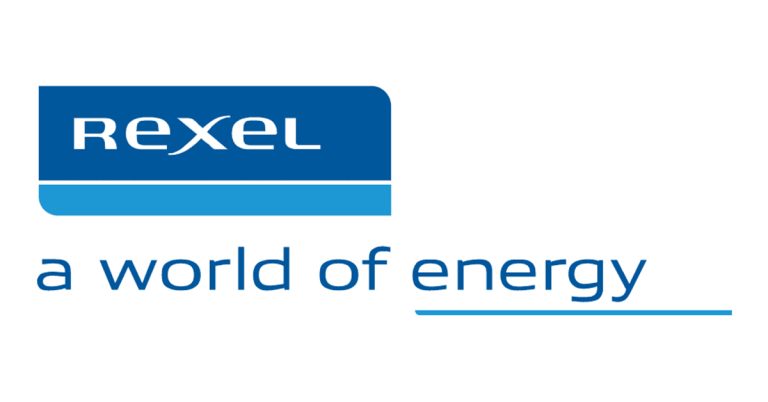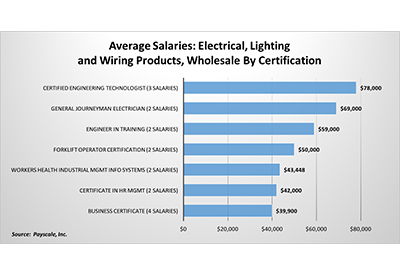Is Amazon an Alternate Channel or Just Meeting Customer Needs?

October 17, 2016
Yes, Amazon Business is a competitor to distributors. It is also an opportunity for manufacturers given that it represents an additional distribution channel to reach customers.
Why? Because some customers desire to purchase through a different mode.
Why are they not an alternative channel? Consider, how are they different from cataloguers, distributors who sell online, e-tailers and e-distributors, Grainger or thousands of other companies that sell manufacturer products online (and don’t forget, manufacturers who sell direct via online stores)? Essentially they are filling a role in the market for customers and manufacturers. If they didn’t fill a role for the customer, they wouldn’t exist in the construction / industrial / MRO / electrical space.
In fact, many of us purchase something from either Amazon or Grainger, the electrical industry’s avowed “competitors.” In other words, Amazon Business’ US$1 billion is not all construction / MRO / industrial (or electrical) sales. They have a very broad offering. Broad enough that before you criticize Amazon, or Grainger, you may want to ask your accounting department if your company has an account with either of these companies.
And if you do, perhaps it is an opportunity to conduct some competitive intelligence to get a sense of services and pricing.
Over the past year, we’ve reported that Amazon has hired outside salespeople and written the APIs (tech term) to facilitate connections to about 25 punch-out systems.
And they are having success, albeit not frequently publicized. Here’s an article that highlights how, and why, Henkel, a large industrial with presumably a good-size MRO spend, converted to Amazon Business: www.b2becommerceworld.com/mobile/2016/06/28/how-manufacturer-henkel-improves-purchasing-amazon-business. The article doesn’t specify whom they took the business from. However, this would normally be a national account for Grainger or, if they did an electrical national account, it could go to any of the electrical national chains (WESCO, Graybar, et al) or national account organizations (SupplyForce, IMSupply).
And if electrical distributors “lost” MRO business through the contract going to Amazon Business (and the concept of a contract confirms that Amazon is not always selling at “website price” but can negotiate for contracts), then perhaps distributors need to adjust their pricing strategy to get compensated for services / support and appropriately for any products that are sold. It’s a safe bet that Amazon does not have access to all lines unless distributors are willing to sell them to Amazon.
We’ve spoken to distributors who have had contractors come to them and say, “I can get that ‘can’ (recessed lighting) cheaper on Amazon.” And then the distributor dropped their price to do a price match. Perhaps sales needs to be given some negotiation lessons on how to handle this. Perhaps nicely suggest that the customer purchase that way or ask why he didn’t? Ask him if he could have waited 1-2 days for the material? Would it be delivered to his job site or could he essentially guarantee a delivery window (I know we get our mail / FedEx / UPS at random times in the afternoon and till 7:00 pm)? What would happen if he needed additional material or matching trims? Or the value of his time — the difference between time spent “surfing” vs. calling the distributor?
And we’ve spoken to manufacturer reps who have called on industrial facilities that have purchased test and measurement products less expensively on Amazon.
It’s essentially no different than competing against another distributor. The advantage that Amazon and Grainger have is that they had the financial resources to invest before the customer was ready for the need. They could “sense” the market based on consumer dynamics. The challenge for many distributors is that they don’t have the personnel resources, financial depth and fortitude, strategy, and luxury of time.
Marketing groups are trying to help
AD has its Content Services group, which offers a robust, enriched database for pennies on the dollar (that uses the IDW as the foundation) and provides members access to an integrated ecommerce platform with mobile capabilities as well as punch-out capabilities at rates that are affordable for all, if a solution is desired.
Here’s a recent video on some of the AD eCommerce services: https://www.youtube.com/watch?v=5z7bmOP7kkc&feature=em-subs_digest.
IMARK developed a relationship with Trade Service and Second Phase to develop a system that reportedly about 40 members are participating in.
Challenges for independents include:
· It will take 8-12 months to implement a robust eCommerce solution, especially if data needs to be developed (taxonomy, enrichment, etc)
· Once you start an eCommerce initiative, you quickly learn that there are many other elements of the company that need to be reviewed. These may include infrastructure issues, pricing models, tax reporting software, warehouse / logistics decisions, departmental responsibility, sales / branch reporting, commissions / compensation, marketing to drive adoption and continued usage, considerations of call centres, knowledge databases, marketing automation, CRM elements, and much more.
· The investment in the platform is “just the beginning,” and there is no backing out. We foresee marketing groups developing additional tools to leverage the financial resources of the group to provide marketing and other elements with the goal of reducing costs for distributors and manufacturers. Otherwise, many distributors will be duplicating costs and reducing profits. As someone said, “eCommerce is like owning a boat. The initial purchase is the least expensive purchase. It is the ‘gift that keeps on giving.’”
But, customers in general are either asking for, will ask for, or are currently using (but not telling you) these resources. The distributor of tomorrow (as in 2017 / 2018) will need to offer omni-channel capabilities to their customers. This doesn’t mean other distributors go away, especially small companies that are focused on selected geographic areas. How you position / market your company will define how your customers perceive you.
So, don’t think of Amazon as a alternative channel … they are a competitor just like the distributor across the street from you!
Have you “found” Amazon at your customers? How do you respond?
David Gordon is President of Channel Marketing Group. Channel Marketing Group develops market share and growth strategies for manufacturers and distributors and develops market research. CMG’s specialty is the electrical industry. He also authors an electrical industry blog, www.electricaltrends.com. He can be reached at 919-488-8635 or dgordon@channelmkt.com.











